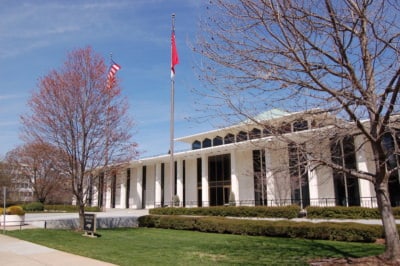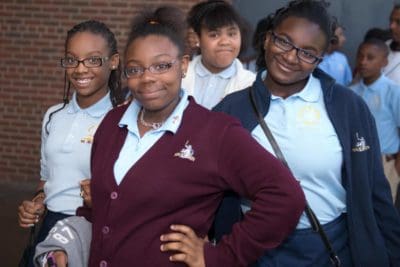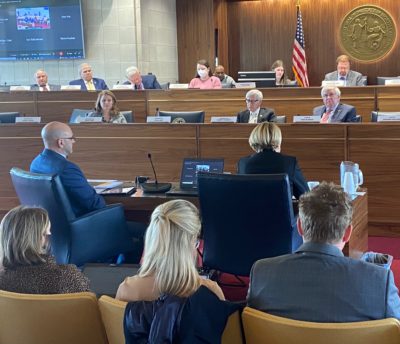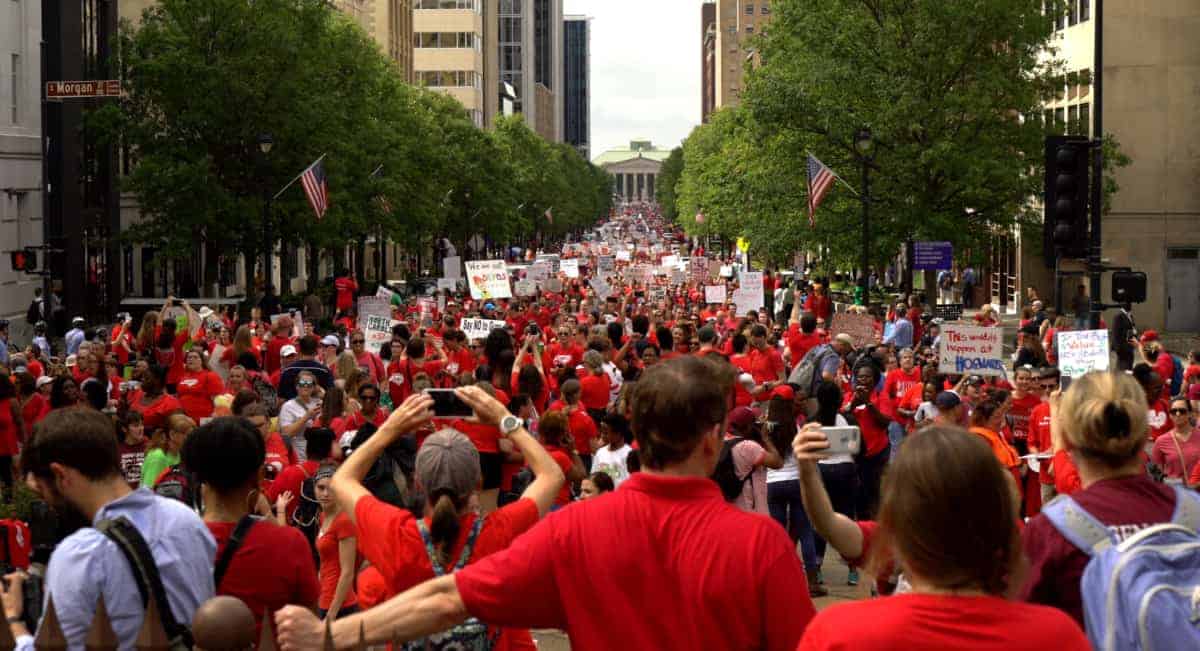Ever since the announcement of the May 1 teacher rally, there has been a procession of articles, press releases, and school closings presaging the event. It is, in effect, a teacher rally before the rally ever happens.
The purpose of the teacher rally is multi-pronged: to highlight a series of education issues, to bring these to the attention of lawmakers, and to show that there is a strong force of teachers in support of public education.
Almost daily, news items on the rally have helped to highlight in advance the issues concerning educators. Regular postings of school districts closing school on May 1 show the force in support of these issues. And regular back-and-forth, not to mention interviews with lawmakers and education advocates, show that the state’s leaders are aware now of both the issues and the number of teachers who support them.
While lawmakers aren’t up for election in November, as they were for last year’s rally, there are a whole host of other ways in which this rally could influence future politics. As has been stated in interviews about the rally, the General Assembly is gearing up to release and debate the state budget for the next two years. In fact, the full House appropriations committee is meeting Wednesday to discuss their proposal. With the Republican supermajority broken, and the power of Gov. Roy Cooper’s veto solidified, teachers could have a large impact on what happens. That is one reason why teachers have said they are rallying on May 1.
One possible unintentional impact of the rally has already materialized. Lawmakers, perhaps frustrated with the upcoming rally, included in the House budget plan a provision that would prevent teachers from taking leave unless a suitable substitute can be found.
The 2020 race for the Superintendent of Public Instruction might also be impacted by the rally. An ever-growing list of Democrats are throwing their hats in the ring to take on Republican Superintendent of Public Instruction Mark Johnson. In addition to Jen Mangrum, a University of Greensboro School of Education assistant professor who unsuccessfully took on Senate President Pro Tempore Phil Berger, R-Rockingham, in last year’s election, there is also Michael Maher, assistant dean of professional education at North Carolina State University, Keith Sutton, vice chair of the Wake County Board of Education, and James Barrett, a school board member in Chapel Hill-Carrboro. On Friday, Amy Jablonski, leadership development and research project director at SWIFT Education Center (and formerly of DPI), also announced that she is running.
Johnson hasn’t proven himself popular with the North Carolina Association of Educators or many of the most vocal teachers involved in the upcoming rally, so the message of May 1 may help to bolster the competition against him.
In fact, Johnson has sent out messages at least twice asking educators not to rally on a school day.
First on March 28:
We support teachers and are championing the changes our education system needs, but I cannot support protests that force schools to close.
The protest organizers should choose a non-school day. The legislature will be in session in Raleigh for at least another three months, a time period that spans dozens of days students are not scheduled to be in school, including spring break and summer break.
Protesting is a right that can be just as effective during non-school hours. Closing schools affects not only students’ learning and nutrition, but also parents, other school employees, and other teachers.
We have more work to do, but we listen to educators’ concerns and have been responding with efforts to raise teacher pay, provide state funding for school construction needs, reduce high-stakes testing, improve school safety efforts, and more.
And then again on April 5:
When I visit schools around North Carolina, I talk to teachers, hear your concerns, and bring your ideas back to the capital seeking results. These visits and discussions most recently resulted in legislation introduced just this week that would give you direct control of $400 to spend on classroom supplies as you, the teachers, see fit. Also, I am working with the General Assembly to increase the total funding for classroom supplies that goes to your districts.
I encourage discussions about different ideas and opinions. Your voice is crucial. I want you to know why I cannot agree with one group’s proposal to encourage schools to close on May 1.
Many of you have dealt firsthand with the consequences of the severe weather this year and the resulting school closings due to hurricanes, flooding, and bad winter weather. More than 1 million students missed at least one day of school due to Florence alone – and more than 160,000 students missed 10 or more days because of that same storm.
Weather hit us hard this year, and I do not want to encourage any more students missing any more school days. It’s not good for students’ academic and nutritional needs, or for our bus drivers and some other non-certified staff, who may miss scheduled work hours and, as a result, pay.
As you consider the different ways you can influence your state government, I ask that as an alternative to Wednesday, May 1, you consider taking action on a day when schools are not in session.
Consider scheduling meetings with your representatives during spring break. I plan to be in Raleigh for most of the days during the upcoming spring breaks in order to meet with you and legislators. As meetings are scheduled, we will be working with legislators to join you. There is also the opportunity to organize a march in Raleigh one day in June right after the traditional school year ends.
As always, when you are in Raleigh, regardless of the date, the DPI building will be available to you if you need it for water, restrooms, or shelter from the weather.
Thank you for everything you do for your students and your service to our state. North Carolina is fortunate to have each and every one of you.
In response to the rally and criticism of Republican education policies, GOP leaders have pointed out that the state has given annual pay raises to teachers for years, and that, as a result, North Carolina moved up in the rankings of average teacher pay from 37th last year to 29th this year.
But teacher pay is only a piece of the teachers’ demands. Expansion of Medicaid, more school support personnel, and restoration of retiree health benefits for teachers hired after 2021 also round out the list. The House budget proposal addresses — in part — at least one of those issues, with extra funding for school support personnel.
Meanwhile, support for the rally might not be as universal as it was last year when 42 districts closed, leaving about 68% of the state’s public school students out of school. This year, at least 30 school districts have shut their doors for May 1 as of Friday.
Even editorials from news organizations are mixed. WRAL.com said it is “proud of the public school teachers who are coming to Raleigh next week,” while the Wilmington Star-News said it is “disappointed that enough teachers plan to miss school May 1 to attend a rally in Raleigh that several districts are cancelling classes.”
Whatever else happens on May 1, the teacher rally has already shown itself successful in owning the news cycle, spreading its influence far beyond the reality of the actual event. All that’s left is to see if that translates into real political change.
Here are the details of the rally for Wednesday:
8:30 a.m. Buses begin to arrive at NCAE HQ (700 S. Salisbury St., Raleigh)
10 a.m. Pre-rally begins at NCAE HQ
10:30 a.m. March begins
12:30 p.m. Rally begins on Halifax Mall
1:30 p.m. Regional legislative meetings begin
2:30 p.m. Event ends
3:30 p.m. Buses pick-up at NCAE HQ
I will be inside the General Assembly covering both the rally’s effects, as well as the House appropriations committee budget discussion. EducationNC CEO Mebane Rash, along with our videographer Robert Kinlaw, will be in the streets covering the action.
Recommended reading




